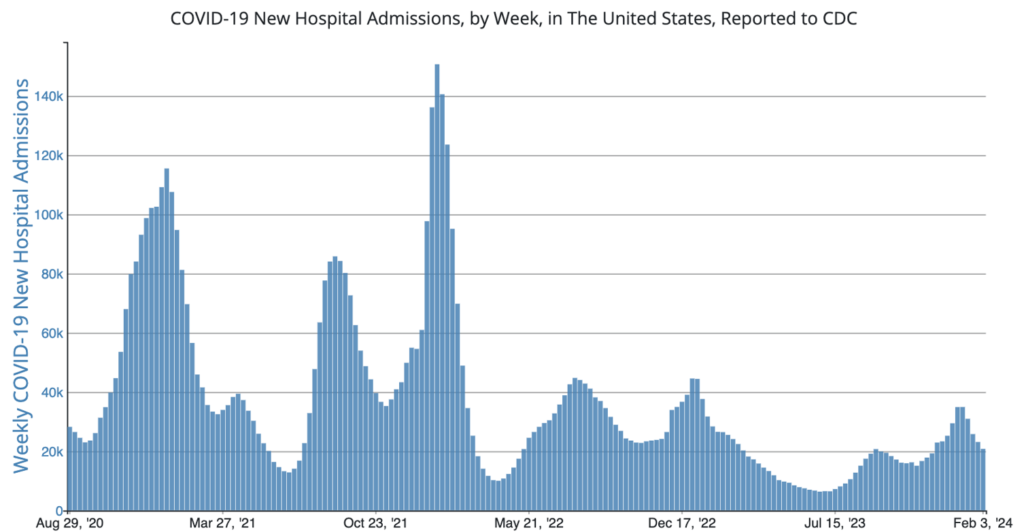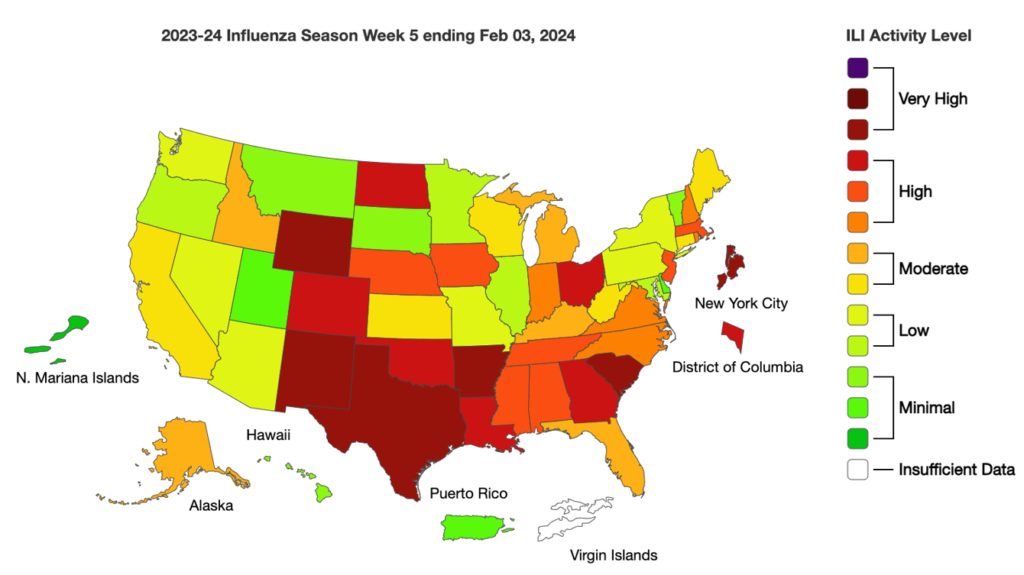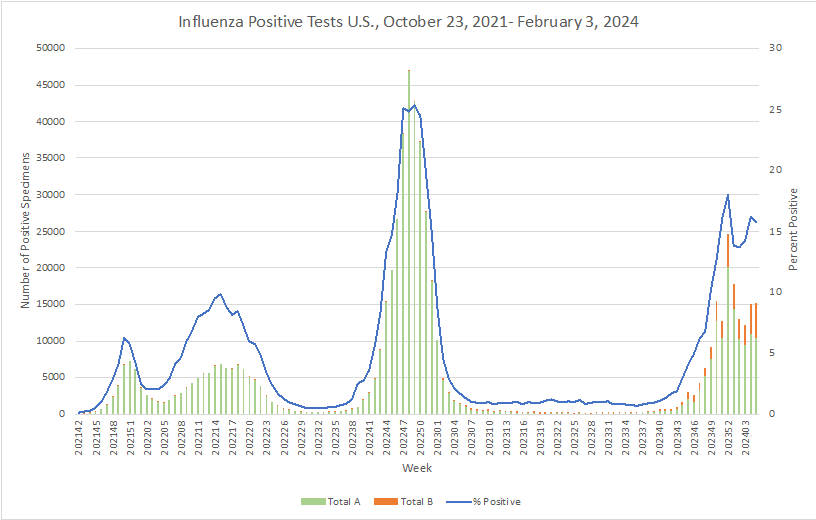With the pandemic just barely out the back door of current events, it seems that many people have gone full circle and regressed back to pre-pandemic attitudes, despite the continuing surges of respiratory diseases. In a January survey of 1,000 managers, ResumeBuilder.com found that 20% encourage workers who are feeling ill to still come into the office; and 11% then “sick shame” them — ridiculing ill workers for appearing ill.
Additionally, of the surveyed managers:
- 33% often ask for medical documentation as proof of illness
- 30% think workers with severe colds shouldn’t take the day off
- 27% believe a culture that encourages sick employees to work is good for productivity
As TAG’s current Communicable Disease matrix shows, respiratory illnesses, including influenza, COVID-19 and RSV continue to remain at high levels, yet, as WSJ reports, people are reporting to work at the highest rates in almost four years.
The bevy of managers encouraging workers to work sick goes against everything TAG has recommended since we began our Public Health Communications at the start of COVID. Even when workers dose up on OTC medications (which is also becoming concerning as sales were 23% higher last year than during the same period in 2019 – prior to the pandemic), the medications don’t reduce the potential for every cough, sneeze, and handshake to further infect your workforce.
The survey reflects a variety of industries, likely including the food industry. The survey was aimed at respondents with an executive, director, or manager-level title at a company with at least 11 employees.
Unfortunately, the regression to pre-COVID attitudes and behaviors is not a complete surprise, as respiratory hygiene seems to rarely be taken seriously at a societal level without significant mortality involved. But that doesn’t make it acceptable. Managers should be leading the drive for a workplace culture of respiratory hygiene, encouraging workers to stay home when ill, and never, never sick shaming those who do.
COVID Risk Matrix:

Influenza:


- Cholera cases are on the rise in South Africa – with a case fatality rate as high as 3% in some cases that is higher than typical (about 1%). Contributing factors to the outbreak include – poor water and sewer infrastructure, climate change leading to increased chances of normal to above-normal rainfall. Heads of State and Government from the Southern Africa Development Community met recently and agreed on a series of actions to address the outbreak. These include increased collaboration, development of response plans for natural disasters and climatic effects on cholera, synchronizing vaccination campaigns, increasing budget allocations, etc.
- In The Lancet Infectious Diseases, researchers from Brazil and the UK noted there is a risk of death higher for nearly 3 months after chikungunya illness onset. There were notable risks mentioned such as cerebrovascular disease, ischemic heart disease, and diabetes. Preventive measures, such as vector control, vaccines, and public health interventions, are crucial to reduce the transmission and impact of the virus.
- Brazil’s Health Ministry warns that it expects more than 4.2 million dengue cases this year, outstripping the 4.1 million cases the Pan-American Health Organization recorded for all 42 countries in the region last year.
- CorDx has submitted an Emergency Use Authorization application for its CorDx TyFast Flu A/B & COVID-19 Multiplex Rapid Test to the U.S. FDA. It gives results in 10 minutes.
- The state of Washington is placing health kiosks around the state after the launch of a new initiative offering free COVID-19 and flu tests.
- A Health Board reports the first case of measles in Estonia in years in an adult who had been vaccinated in their youth, in the 1960s. The case patient had not recently traveled abroad, so the source is a mystery.
- The Queen Victoria ocean liner was on its way to Honolulu earlier this week from San Francisco on a 107-night world cruise when more than 150 people on board reported symptoms, officials said. Norovirus illnesses occurred earlier during the ship’s voyage between Florida and San Francisco from Jan. 22-Feb. 6. As of Thursday, Feb. 8, 129 passengers and 25 crew members had become ill, according to the CDC. Cases are being closely monitored.
- Health officials in Wisconsin are notifying close contacts of a UW-Madison student with active, contagious tuberculosis and providing free testing. The student has not been on campus since December, but the case was just identified on January 30th.





